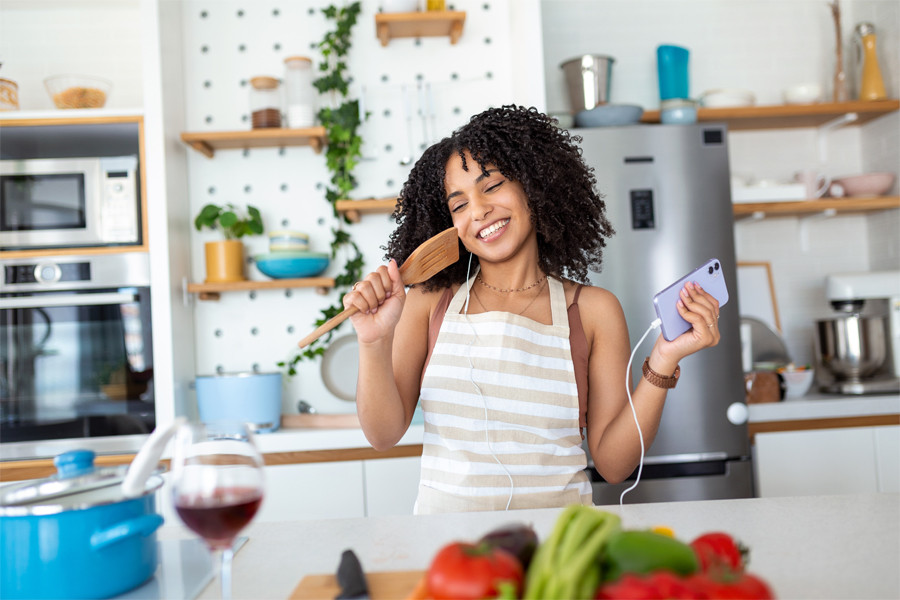For the uninitiated observer, dancing might seem pretty easy when watched from a distance. But what a lot of people don't know is how much dedication and hard work it takes to become a great dancer. Discipline is a huge requirement to meet training targets and perform well. But plenty of rest and a proper diet also play a massive part in making a dancer the very best they can be.
Whatever the dance, from Samba to Latin and everything in between, you'll burn up an enormous amount of energy performing and practicing your routines. Proper nutrition not only provides your body with the fuel you need, but it also helps to reduce the risk of injuries. Dancers generally have a lot on their plate aside from the training and performances; you might have a busy family life, you could be holding down a full or part-time job, you might still be going to school. All of this requires energy too.
A healthy and balanced diet will go a long way to transform a mediocre dancer into a great one. Proper nutrition will allow you to work hard through your training sessions without wearing yourself out, and it can help you produce epic performances on stage.
Carbohydrates are the body's primary source of fuel, so naturally, a dancer's diet should contain a lot of them. Potatoes, rice, whole grain, yogurt, fruit, and vegetables, are just some of the healthy carbs that should figure high on every dancer's nutrition plan.
Proteins are essential for dancers as they help repair body tissue. A good helping of animal or plant-based protein should be included in every meal. Protein-packed lean meats, fish, nuts, and seeds should be significant components in the serious dancer's diet.
Below Are 10 Tips For The Proper Nutrition Of A Dancer.
Meal Planner
Skipping meals or grabbing quick unhealthy snacks will negatively impact your performance, so it makes sense to plan every meal. A great meal plan consists of 3 balanced meals and at least two healthy snacks. This provides the dancer with adequate energy and helps cut down on all those annoying cravings for sweets and fast foods.
High Carb Meals
Energy keeps dancers alert and able to perform at the top of their game, so they should consist of at least three complex carbohydrates in every meal. The very best and most versatile carbohydrates include rice, potatoes, fruit, and vegetables, plus you can refresh your palate with low carb milk or yogurt.
Fruit and Vegetables
Not only are fruit and veg an excellent source of vitamins, but they also have a high content of carbohydrates, so they're a convenient and delicious source of even more energy. Try to vary your intake of fruit and veg with at least five different helpings, but don't overdo it with just one sort. A single serving equals around one cup per meal.
Protein
Whether animal or plant-based, you need protein to protect and grow muscle and body tissue. You can opt for eggs and Greek yogurt for breakfast, a tuna or chicken salad for lunch and either fish or chicken for dinner. The aim is to get about 4 ounces of good, lean protein at each meal.
Healthy Fats
You'll want to consume fats in moderation, but never try to cut them from your diet entirely. Healthy fats are a source of extra energy for those long training days or performances. Excellent sources of fats include flax seeds (try one tablespoonful at breakfast,) a few slices of avocado, olive oil, and different types of nuts.
Healthy Alternatives
If you'd prefer not to eat animal products, then you can find loads of healthy, plant-based alternatives, such as leafy vegetables, quinoa, beans, lentils, and seeds of various kinds are all tasty sources of alternative proteins.
Snacking
We recommend you eat at least two snacks in between meals, and you can take these about an hour to dancing. Healthy snacks include fruit, Greek yogurt, crackers or a smoothie.
Eat Slow
Don't rush yourself through your meals as this too can have a negative impact on your performance. Take at least 20 minutes after you've finished a meal before you start to dance again. And if you're going to be hitting the gym or have some heavy training sessions in mind, it's best to give your digestion at least 3 hours to do its job properly before you begin.
Post Training
After a workout, you'll need to fuel your body so that it can heal, and that is where your post-workout snack comes in. This can be a light, healthy snack, or a fluid such as a smoothie, that will refresh your body and help replenish your energy levels.
Water and Fluids
As a dancer, you should take extra care not to dehydrate, so you need to sip on water or some alternative fluid regularly. Dancers work hard, and of course, they sweat a lot. The best way to stay hydrated is to replace that sweat immediately.
Proper nutrition shouldn't be fly-by-night. It needs to be practiced on a daily basis. There's no point starting a healthy diet a couple of days before an important performance as your body won't have time to react to the improved nutrition. Try thinking of consuming good food as just more training, and an essential part of your daily dance and exercise regime.
 USD
USD
 EUR
EUR
 AUD
AUD
 GBP
GBP
 SGD
SGD

